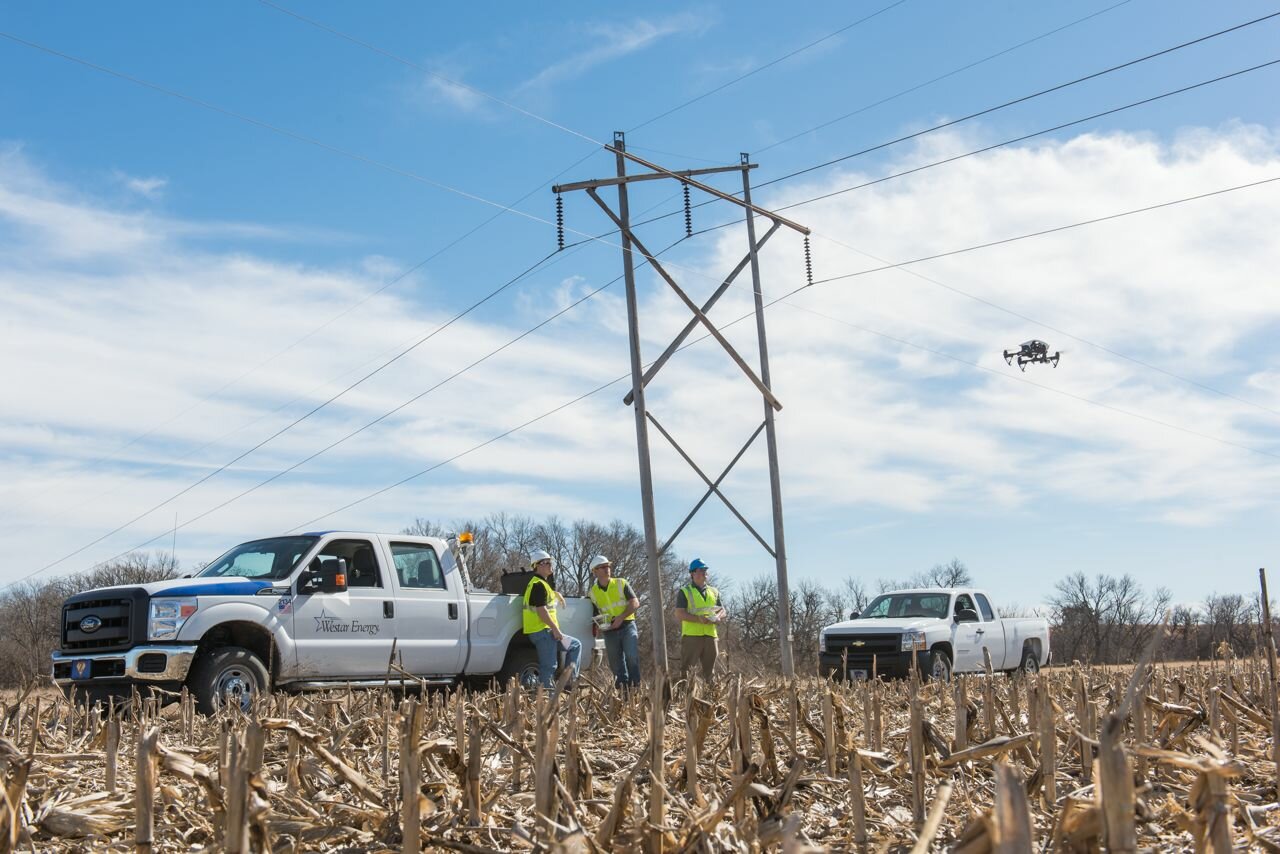Kansas State University’s Polytechnic Campus and Kansas-based power company Westar Energy say they are increasingly using drone technology to advance electric utility inspection and maintenance methods.
With a focus on increasing reliability for customers, improving employee safety and reducing costs, Kansas State Polytechnic’s unmanned aircraft systems (UAS) program and Westar Energy have been collaborating over the past year to integrate unmanned aircraft into the power company’s services. Westar Energy provides electricity to about 700,000 homes and businesses in the eastern third of Kansas.
The partners, whose relationship dates back to 2013, have been working to establish an in-house UAS team at Westar Energy, as well as redefine inspection and maintenance techniques using drones for transmission lines, power plant boilers and electrical substations.
“One of our program’s strategic objectives has been to help introduce UAS technology to the commercial market, and we are proud to have Westar Energy as a partner because this collaborative relationship is a win-win for both of our interests,” says Kurt Carraway, executive director of the UAS program on K-State’s Polytechnic Campus.
According to the partners, Westar Energy has implemented drone technology in the day-to-day inspection of thousands of miles of transmission lines and utility towers that run across Kansas.
The partners say the drones can capture imagery of structures to identify needed replacements and inspect completed repairs. The standard procedure is to use binoculars to examine lines and towers or ride lifts high into the air.
Westar has a team of employees who have completed multi-rotor and fixed-wing drone training at Kansas State Polytechnic and lead the power company’s internal UAS division.
“Our UAS program saves money for customers by making our operations more efficient and our work safer. It also makes our service more reliable,” says Jason Klenklen, supervisor of transmission maintenance for Westar Energy.
For example, Westar employees have been trained how to set up an autonomous flight plan and how to execute the mission to ensure quality data.
Kansas State Polytechnic and Westar Energy’s most recent exploration was focused on using drones to inspect boilers. The use of UAS inside a boiler reduces risks to personnel and allows assessments to be conducted in an efficient and timely manner, the partners say.
Sam Sharp, a researcher in the Kansas State Polytechnic UAS Laboratory and Westar Energy’s primary liaison, explains, “Because there are no lights inside the boiler and a GPS signal is not accessible, extensive training is needed to control the aircraft. This is one of the most valuable applications of a drone within the energy sector, so the lengthy training is worth it.”
In October 2015, Westar Energy and Kansas State Polytechnic collaborated on opening one of the largest enclosed unmanned flight facilities in the nation. The structure, called the Smoky Hills UAS Pavilion, provides a space for flight training and research.


 Categories :
Categories : 

